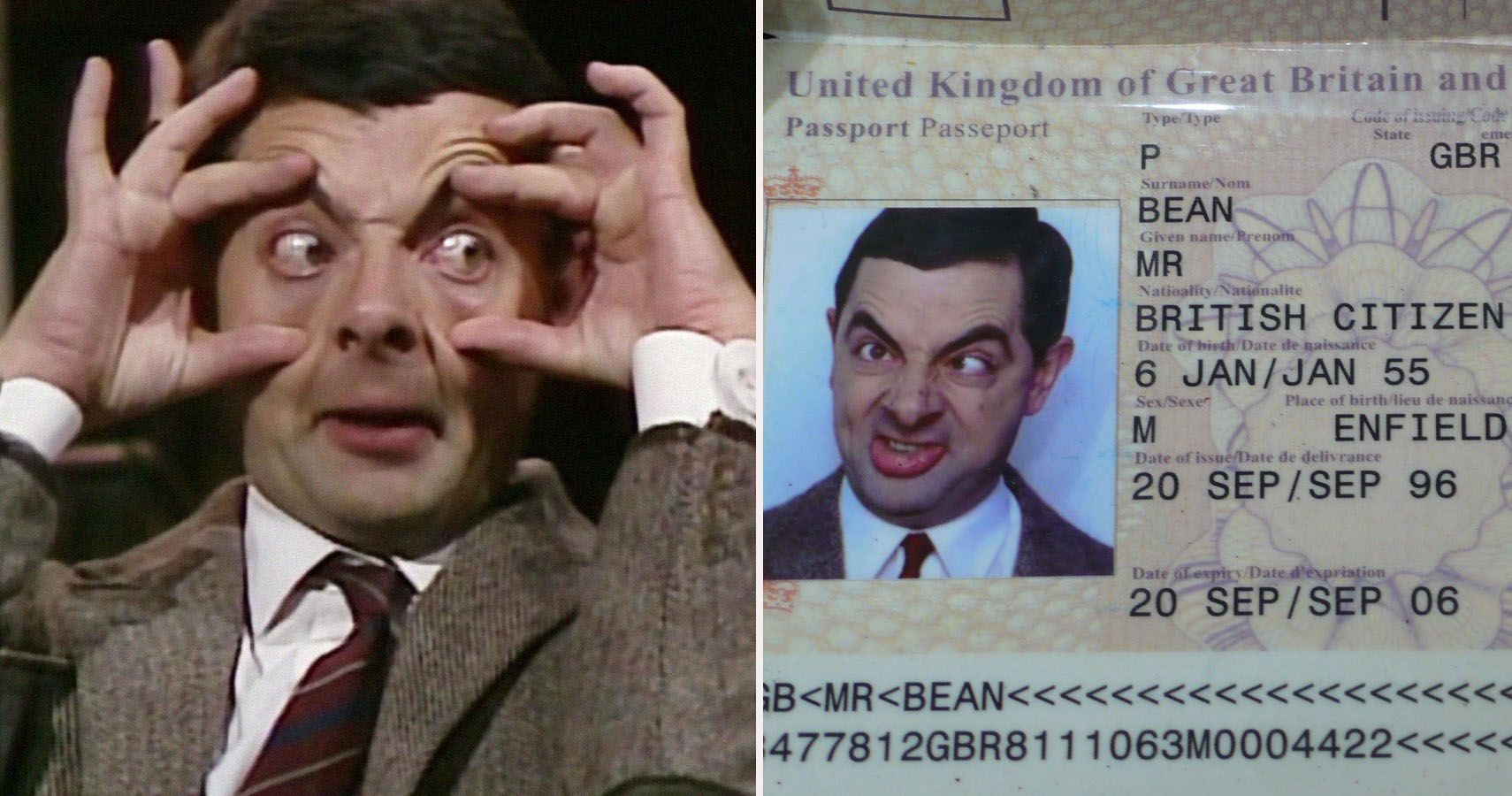Does Mr. Bean Have Autism? Exploring The Beloved Character's Traits
Have you ever found yourself watching Mr. Bean, maybe after seeing it as a child, and thought to yourself, "Could he actually be autistic?" It's a question that, quite frankly, many people wonder about when they revisit the character. This thought often pops up because of how he acts and interacts with the world around him, which can really make you think about different ways people experience life.
For someone just starting to watch the classic Mr. Bean series again, or perhaps seeing it for the very first time, it's pretty common to notice certain patterns. The way Mr. Bean communicates, his social habits, and even how he deals with everyday situations often spark conversations. Many people feel he is, in a way, coded as autistic, whether the show's creators meant for that to happen or not.
This idea isn't just a casual observation; it comes from looking closely at his behaviors throughout the original series. From his unique way of speaking to his often awkward social encounters, there are several things that might lead someone to interpret Mr. Bean as being on the autism spectrum. We'll take a closer look at these points and see why this interpretation feels so accurate to many.
- Ayrton Senna Net Worth
- Peter Gunz Net Worth
- Ross Mathews Net Worth
- William Katt Net Worth
- Net Worth Of Selena Quintanilla
Table of Contents
- Character Profile: Who is Mr. Bean?
- The Question of Autism: Early Observations
- Communication Style: More Than Just Mumbles
- Childlike Behavior and Social Awkwardness
- The 1990s Context: Understanding Autism Back Then
- A Personal Interpretation: Living with Autism and Mr. Bean
- Mr. Bean's Life: Loneliness and Daily Struggles
- Paying the Bills: A Look at Mr. Bean's Finances
- The Undiagnosed Spectrum: A Common Reality
- FAQs About Mr. Bean and Autism
- Final Thoughts on Mr. Bean's Portrayal
Character Profile: Who is Mr. Bean?
Before we explore the question of whether Mr. Bean has autism, it helps to remember some key details about the character himself. He's a figure known for his quiet demeanor and his often peculiar solutions to everyday problems. He usually finds himself in funny situations, often without saying much at all.
| Detail | Description |
|---|---|
| Name | Mr. Bean |
| First Aired | 1990 |
| Primary Communication | Mumbles, one-word responses (like "Bean!") |
| Social Traits | Awkward, often seems childlike, struggles with social cues |
| Perceived Status | Often interpreted as lonely, possibly undiagnosed autistic |
| Living Situation | Lives in a small, simple room with a small bed |
The Question of Autism: Early Observations
When someone starts watching Mr. Bean, especially if they are seeing it with fresh eyes as an adult, a thought that often comes up is whether he's coded as autistic. This isn't just a random idea; it's something that feels quite apparent throughout the original series, as a matter of fact. The way he interacts, or rather, doesn't interact, with others is a big part of this feeling.
Think about his speech patterns, for example. Throughout nearly the entire original series, Mr. Bean mostly speaks with mumbles, or he gives very short, one-word responses, like simply saying "Bean." This kind of monosyllabic word choice could, in some respects, link to possible autism or Asperger's traits. It's not that he can't speak, but he just doesn't use many words.
- Stavros Niarchos 111
- Billy Ray Cyrus Net Worth 2024
- Net Worth Eddie Cibrian
- Chris Elliott Net Worth
- Net Worth Of Christina Applegate
This particular way of communicating, or his lack of conventional dialogue, really stands out. It's a hallmark of his character, and it certainly makes you wonder about the thought process behind it. For many viewers, it just clicks that these behaviors resemble how some people on the autism spectrum might communicate, or so it seems.
Communication Style: More Than Just Mumbles
It's interesting to note that while Mr. Bean is known for his quiet nature, his sketches are not, by any means, silent movies. The character is, in fact, perfectly capable of speech; he just doesn't talk much. This distinction is quite important when considering his communication style.
He might utter a word or two, or make a sound that conveys his meaning, but long sentences are simply not his style. This isn't a limitation of his vocal cords, but rather a choice, or perhaps a natural inclination, within his character. It’s almost as if he finds other ways to get his point across, using his body language and facial expressions instead.
So, while his communication is minimal, it's also incredibly expressive. He conveys a great deal without needing many words, which is, you know, a different kind of communication altogether. This unique approach to talking, or not talking, is a significant part of what makes him so memorable and, for some, relatable to autistic traits.
Childlike Behavior and Social Awkwardness
Another aspect of Mr. Bean that often resonates with the idea of him being on the spectrum is his sometimes very childlike behavior. He approaches the world with a certain innocence and a very literal way of thinking, which can be both endearing and, frankly, a bit puzzling to those around him. This often leads to situations that are quite funny.
He's also, quite noticeably, awkward around other people. Social interactions don't seem to come easily to him, and he often misses social cues or reacts in ways that others might find unusual. This awkwardness isn't mean-spirited; it's just how he navigates the social world, and it's something many people can relate to, or so it appears.
I personally grew up watching Mr. Bean, and I really love the show. I thought it was cute and funny, and I honestly have lots of my own "Mr. Bean moments" in my day, haha. He made me feel, well, a certain way about my own little quirks. It’s that relatable, awkward charm that, in a way, makes him so beloved.
The 1990s Context: Understanding Autism Back Then
It's really important to remember when Mr. Bean first aired, back in 1990. As someone who was alive in the UK, where Mr. Bean originated, in 1990, I can assure you that the idea of what autism was back then was wildly different to how it's seen today. Autism awareness and understanding have, quite simply, come a very long way since then.
In the early 90s, the public's perception of autism was much narrower, often limited to very specific, and sometimes stereotypical, presentations. The broader spectrum of autism, including what was then often referred to as Asperger's, wasn't widely recognized or understood by the general public. Doctors and researchers, too, were still learning so much.
So, whether the writers purposefully coded him as autistic is, perhaps, less relevant than the fact that the interpretation fits so well today. The concept of neurodiversity was not nearly as prominent then as it is now, which means any "coding" would have been, you know, quite unintentional in that specific sense. It's a fascinating thought, really, how perspectives change over time.
A Personal Interpretation: Living with Autism and Mr. Bean
For some people, the connection between Mr. Bean and autism goes beyond mere observation; it's a deeply personal interpretation. As someone with autism, I've always interpreted Mr. Bean as autistic. It's a feeling that has stuck with me for a long time, and it makes a lot of sense when you look at his actions.
Whether this was the intended meaning of the creators or not, it's certainly an accurate interpretation of who Mr. Bean is as a person. His struggles with social situations, his unique way of solving problems, and his often solitary existence just resonate. It's like seeing a piece of your own experience reflected back at you through a comedic lens.
This personal connection makes the character feel, you know, very real and relatable, even with all his slapstick humor. It's not about diagnosing a fictional character, but about recognizing traits that mirror the experiences of many autistic individuals. This perspective offers a rich, very human-centric way of appreciating the show.
Mr. Bean's Life: Loneliness and Daily Struggles
Beyond the humor, there's a certain sadness that some people perceive in Mr. Bean's character. Some suggest that Bean is actually a sad, heavily autistic, poor, and lonely man that happens to be funny when viewed from a third-person perspective, in the eyes of a stranger. This adds a layer of depth to his otherwise lighthearted adventures.
His living situation, with his little room and his little bed, paints a picture of a rather simple, almost isolated existence. He doesn't seem to have many close friends, and his interactions with others are often brief and, frankly, a bit strained. This sense of solitude can be quite poignant, you know, when you really think about it.
This interpretation suggests that his humorous antics might stem from a genuine struggle to navigate a world that doesn't quite understand him, or that he doesn't quite understand. It's a way of looking at his character that brings a lot more empathy to his daily struggles. It’s a pretty compelling idea, honestly.
Paying the Bills: A Look at Mr. Bean's Finances
A practical question that sometimes comes up is how Mr. Bean manages his life, especially financially. For instance, how does Mr. Bean pay his rent to Mrs. Wicket? He doesn't seem to have a job, as far as we can see. This question often leads back to the discussion of his potential neurodiversity.
Some people personally think that because he's a big kid, he may have autism and is unable to work as his primary source of income. This idea suggests that his unique way of interacting with the world might make traditional employment a significant challenge for him. It's a very practical consideration that adds weight to the autistic interpretation.
This perspective offers a way to explain his seemingly unburdened lifestyle, which, you know, is quite unusual for an adult. It highlights how certain traits associated with autism might impact daily life and the ability to fit into conventional societal structures. It’s a rather thoughtful way of looking at his character, actually.
The Undiagnosed Spectrum: A Common Reality
One of the most powerful points made about Mr. Bean's potential autism is the idea that he is sadly never diagnosed. What other people don't know is that young R.E. Bean is, in this interpretation, on the autism spectrum. This lack of a formal diagnosis is a reality for many individuals, even today.
Because he is never diagnosed, he never receives any support or services that could help him with his daily challenges. This is a very common experience for many autistic people, especially those from older generations or in places where awareness and diagnostic resources are scarce. It’s a rather stark reality, really.
This adds a layer of realism and pathos to the character, suggesting that his struggles are not just for comedic effect but reflect a genuine experience of living undiagnosed in a neurotypical world. It makes his character, in a way, a symbol for those who navigate life without formal recognition or support for their neurodivergence. You can learn more about neurodiversity on our site.
FAQs About Mr. Bean and Autism
Is Mr. Bean officially diagnosed with autism in the show?
No, the character of Mr. Bean is not officially diagnosed with autism within the show's narrative. The show never addresses any specific diagnosis for his behaviors. This interpretation comes from viewers who observe traits that resonate with the autism spectrum.
Why do some people interpret Mr. Bean as autistic?
Many people interpret Mr. Bean as autistic due to his distinctive traits. These include his minimal verbal communication, his unique and often awkward social interactions, his childlike approach to problems, and his struggles with understanding social cues. These behaviors often mirror traits associated with the autism spectrum.
Did the creators intend for Mr. Bean to be autistic?
It's generally not clear if the creators, Rowan Atkinson and Richard Curtis, specifically intended for Mr. Bean to be autistic. Given that the show first aired in 1990, the public understanding of autism was very different then. However, many viewers, including those with autism, find the interpretation to be an accurate and relatable portrayal, regardless of original intent. For more information about the character's creation, you might check out resources like the Mr. Bean Wikipedia page.
Final Thoughts on Mr. Bean's Portrayal
So, while Mr. Bean is not officially diagnosed with autism in his world, the traits he displays certainly resonate strongly with the autistic experience for many viewers. His unique communication, his social awkwardness, and his often solitary life provide a compelling basis for this interpretation. It's a way of seeing the character that adds a lot of depth and, you know, a very personal connection for many.
This discussion isn't about labeling a fictional character, but rather about how art can reflect and resonate with real-world experiences. Mr. Bean's enduring popularity might, in part, be due to this unintended relatability for a wide range of people, including those who see aspects of neurodiversity in his actions. It's a pretty interesting phenomenon, actually.
What are your thoughts on Mr. Bean? Have you ever had your own "Mr. Bean moments" in your day, haha? We'd love to hear your perspective on this beloved character and how you interpret his actions. You can also explore more discussions like this on our community pages.
- Actor Samuel Jackson Net Worth
- Morgan Stewart Net Worth
- Emile Hirsch Net Worth
- Net Worth Eddie Cibrian
- Highest Paid Porn Actor

Quand "M. Bean" parodie les supers héros ! Hilarant... - Breakforbuzz

Why Does Mr. Bean Not Speak? All About Rowan Atkinson's Biggest Role

Why Does Mr. Bean Not Speak? All About Rowan Atkinson's Biggest Role